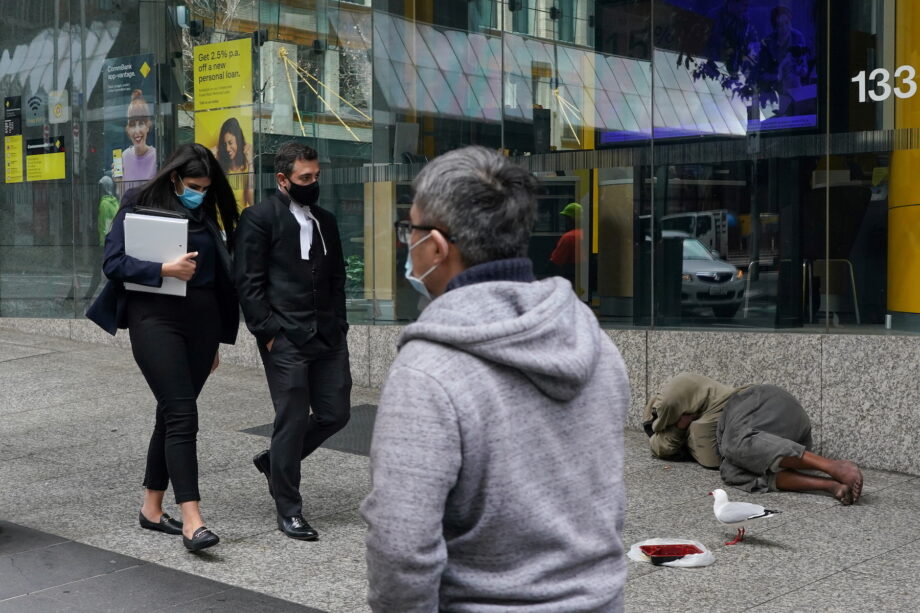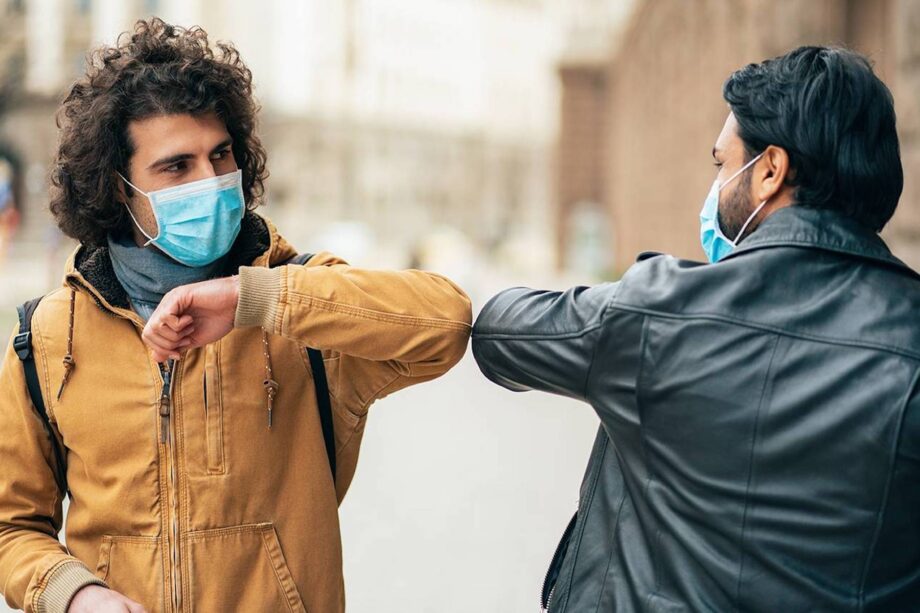Backlash Against ‘R U OK? Day’ Suggests Australia Needs To Change Its Approach To Mental Health

Today, Thursday 10th September, is R U OK? Day in Australia: a day of action designed to bring attention to mental health. Held annually on the second Thursday of September since 2009, it’s one of the most successful mental health initiatives in Australian history, and has become a part of the national vernacular; the zeitgeist.
There’s never been a more important time to talk about mental health, either. The COVID-19 pandemic, which has dominated our lives for almost two years, has been immensely detrimental to our mental health. The quite rational and debilitating fear of illness and death combined with the dearth of social contact thanks to lockdowns and social distancing has been a hell of a one-two punch. Stats from the Australian Institute of Health & Welfare are rather sobering.
While in principle, R U OK? Day is a brilliant idea, a number of Australian intellectuals and public figures have criticised the observance, pointing out how hollow it can feel for some, if the companies promoting it only pay lip service to its message.
About 5 years ago we had to attend a mandatory, all-day wellness session. I was badly burned out and stressed about the work I would now have to take home and stay up til midnight finishing due to the session. The topic? Avoiding burn out and stress, and the importance of sleep.
— BLACK LIVES MATTER (@MyKidsMakeStuff) September 9, 2021
Part of an email I received this morning from a company that didn’t even hire me bc I kept having panic attacks at my training shifts but i’m still on their mass emailing list pic.twitter.com/83EHhuPkZQ
— Gwen (@FreedomForOrcas) September 9, 2021
My neighbour text me this morning to let me know his work was making them do laughter therapy for RUOK day, via zoom, at 8.30am.
— Tegan Richards (@TeganRichards) September 9, 2021
AusPost gave us a $30 Telstra prepaid SIM card (presumably expiring stock or something) to ‘call someone who cares’ a few years back.
— Jealous Craig (@jealouscraig) September 9, 2021
Jill Stark, an award-winning journalist, mental health advocate and author, put it this way on Twitter: “asking R U OK is meaningless if the answer is no and there’s nowhere to go.”
“Corporate cupcakes and trending hashtags are no substitute for affordable, accessible, properly funded mental health services. Many drivers of mental ill health are structural problems that could be fixed if there was political will.”
“Secure housing. Lifting people out of poverty, with a living wage. Funding family violence services. Tackling systemic racism, misogyny, homophobia, ableism and transphobia… The politicians who will today rush to promote R U OK Day are the same politicians who have ripped money out of social supports that help keep people well.”

Stark also decries how “influencers will also co-opt the day to sell you shit you don’t need, under the guise of caring about mental health. At a time when many people are far from OK, we need solutions and meaningful action, not empty tokenism to buy social or political clout.”
Acclaimed Australian philosopher Damon Young agrees. His take? “How ‘bout we change R U OK? Day to Fund Public Mental Health Services Day. And then fund them.”
RELATED: Mental Health Apps Finally Losing Stigma Thanks To Most Unlikely Source
It’s a tricky one. There’s no doubt that when businesses, politicians and even individuals jump in on observances like R U OK? Day (or International Women’s Day, or Earth Day, or Mardi Gras… take your pick, really) it can seem superficial, especially if they aren’t actually making any substantive changes. The Federal Government has recently announced funding boosts to mental health services during the pandemic, but these pale in comparison to the successive cuts they’ve made to health budgets over the last decade.
At the same time, are we being overly cynical? Is it better to have a discussion, even an insubstantial one, rather than no discussion at all? It’s why R U OK’s 2021 tag line, “are they really OK?”, is particularly pertinent: not only does it encourage Aussies to push past people’s tendency to be self-effacing or modest and actually get people to open up about their mental health, but it also encourages us to think more holistically; more broadly about mental health.
View this post on Instagram
At the end of the day, it’s easy to over-intellectualise these things but we shouldn’t discount the difference that simple, individual conversations about mental health can make. As former AFL player and R U OK? Ambassador Tom Derickx told DMARGE earlier this year:
“Originally it was quite difficult for me, but then I saw the benefit when my friends starting opening up to me, so I think it’s just about being in that comfortable environment where you can talk.”
“If there’s a relatable topic it can make it easier, or even just having another beer, it can help to open the door. You might even think, ‘you know what, neither am I mate?’, if they say they’re not OK. It’s just about making an environment where you’re comfortable to talk.”
RELATED: You Don’t Need A Psychology Degree To Ask A Mate If They’re OK
In short – it’s worth being critical about the impact that initiatives like R U OK? Day actually have, but that shouldn’t stop you from trying to make a difference, even if it is as simple as asking a mate if they’re OK.
If this article has brought anything up for you, check out Beyond Blue, Lifeline or Headspace if you need some help.
Read Next
- The Uncomfortable Truth About Sports’ Ongoing Mental Health Debate
- Three Words Every Australian In Lockdown Needs To Hear
Subscribe to the DMARGE newsletter
Follow DMARGE on Instagram
Follow DMARGE on Facebook
The post Backlash Against ‘R U OK? Day’ Suggests Australia Needs To Change Its Approach To Mental Health appeared first on DMARGE.









